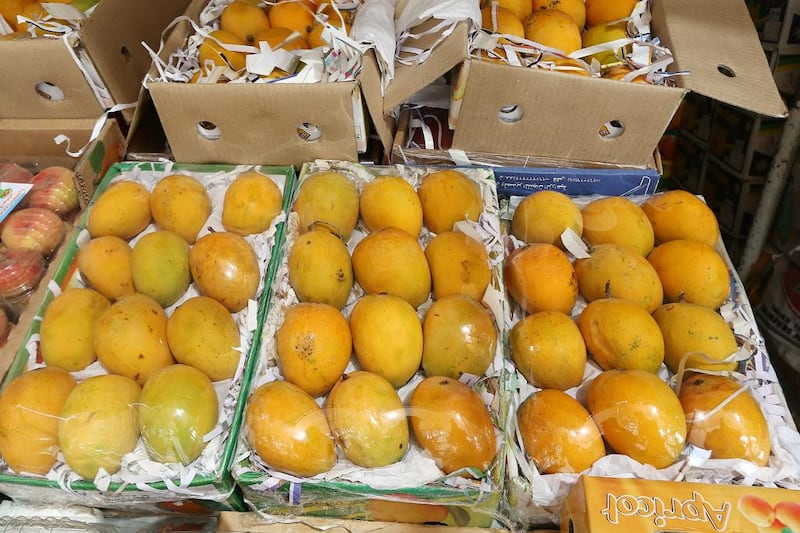ABU DHABI // Food safety inspectors have found unacceptable levels of pesticides and dangerous chemicals in some fruit and vegetables imported from India.
Exporters there have now been ordered to carry out new pesticide residue tests on their produce before it can be approved for sale in the UAE.
The new rules follow inspections by the Ministry for Climate Change and Environment.
India’s agricultural export development authority said it had been told by the ministry that Indian produce had levels of pesticide that exceeded “permitted limits in accordance with international standards”.
Those standards are set by Codex Alimentarius Commission, the food regulatory body for the United Nations and World Health Organisation.
The authority said the UAE had decided “for the health and safety of consumers, entry of chilli peppers, mangoes and cucumbers” will not be allowed “without a residue analysis report with each consignment”.
S Insram Ali, president of the Mango Growers Association of India, said the UAE inspectors had also found calcium carbide in a shipment of mangoes.
The chemical produces acetylene gas to make the fruit ripen more quickly, but is banned in many countries for its carcinogenic properties.
“Apart from this, Indian farmers commonly use large amounts of synthetic pesticide in their farming as they cannot afford organic pesticide, which is very expensive here,” said Mr Ali.
He said acquiring the new safety certificates would initially be a challenge for growers and exporters, as they must include a laboratory report giving the all-clear on pesticide residue levels.
“UAE consumers are our biggest market and we would never want to leave it,” Mr Ali said.
“Understanding and following new rules may hurt exports for some time but eventually we will do our best to remain the largest mango supplier to the UAE.”
The UAE was one of the top four overseas markets for Indian fruit and vegetable from 2014 to last year, and the world’s biggest importer of Indian mangoes and onions.
Fruit and vegetable importers said shoppers should not be worried about the safety of produce here.
Abdul Sabur Chaudary, manager at Altaf and Khammas Trading, said the new rules would ensure overseas farmers used only safe pesticides.
“Fruits and vegetables available on the shelves of supermarkets are safe and healthy. Items that are harmful and of a low standard never enter the market,” Mr Chaudary said.
He said the ministry carried out checks at Jebel Ali Port on consignments arriving in the country.
He said the quality of produce from India was low compared with imports from the West, Australia and South Africa.
“Indian exporters don’t invest in packaging, which hurts the quality of food. But Indian products are in demand because they are affordable and are popular among expatriates.”
T S Thomas, an Indian housewife, was surprised by the report but will continue to buy Indian produce.
“I only buy Indian fruits and vegetables here in Dubai because they are affordable and taste familiar,” she said.
Neeta Bhushan, charge d’affaires at the Indian embassy, said: “All exporters are now getting their products tested, hence the supply of mangoes as well as other fruits and vegetables from India to UAE is not likely to be affected.”
akhaishgi@thenational.ae






